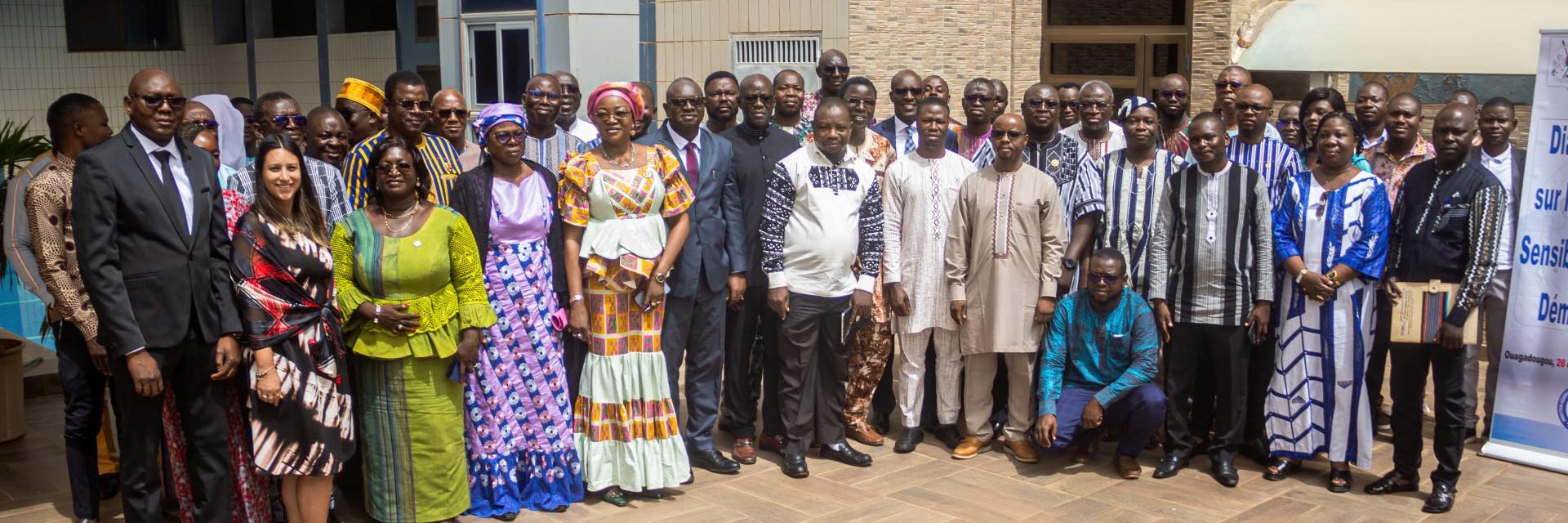Ouagadougou, Burkina Faso, 29 August 2024 – The Sub-Regional Office for West Africa of the United Nations Economic Commission for Africa (SRO-WA/ECA), in partnership with the Ministry of Economy and, Finance, hosted a National Policy Dialogue with parliamentarians and policy decision makers on Budgeting Sensitive to Demographic Dividend (BSDD) in Burkina Faso. The dialogue took place from August 26 to 27, 2024, in Ouagadougou.
Aligning with the African Union’s Roadmap on harnessing the Demographic Dividend by Investing Massively in Youth, The main objective of this meeting was to present the BSDD technical results achieved by Burkina Faso to policy decision makers and parliamentarians. This aims to ensure that the country’s 2025 budget reflects sensitivity to the demographic dividend-related issues.
This initiative will accelerate the capture of the demographic dividend, which is crucial for Burkina Faso’s inclusive, transformational, and sustainable economic development.
According to the Acting Head of the ECA Office for West Africa, Amadou Diouf, "The results achieved by Burkina Faso indicate a positive evolution of the DDMI index, which measures a country’s potential to harness the demographic dividend. The DDMI index increased from 32% in 2003 to 42% in 2020, marking an increase of 10 points of percentage in 17 years, without reaching the 50% threshold required to begin harnessing the demographic dividend potential.
To reach this 50% threshold and transform its demographic profile into opportunities for growth and socio-economic development, continues Amadou Diouf, "the status quo in terms of budget allocation is not a viable option for Burkina Faso. Therefore, adequate budgetary allocations are required to the education and health sectors, which are key pillars of human capital development, to create conducive conditions for accelerating the demographic transition and, more broadly, the achievement of sustainable development goals”.
For her part, Madame Marie-Angele Tiendrebeogo, Chairperson of the Gender, Social Action, and Humanitarian Commission at the Transitional Legislative Assembly of Burkina Faso, emphasized that, "Investments must be appropriately directed towards education, health, and the creation of decent jobs for young people. Indeed, the demographic dividend represents the economic and developmental benefits derived from proper investment in youth”.
The Transitional Legislative Assembly, in its effort to play its part and fulfill its role in terms of guidance and monitoring the consideration of priorities related to the well-being of the population it represents, has always closely monitored initiatives aimed at better allocation of budgetary credits. This is to reap the benefits of the change in age structure of the population, ensuring more economically independent individuals", added Madame Marie-Angele Tiendrebeogo.
According to the Technical Advisor to the Minister of Economy and Finance, Madame Hien Zerbo Mariam, " Similar to other West African countries, Burkina Faso is experiencing rapid population growth, with a growth rate of 2.94% and a total fertility rate of 5.4 children per woman. This exceeds the regional average, which was estimated at 4.5 in 2022 according to the 2019 General Population and Housing Census (NIDS, 2022)”.
However, Madame Hien Zerbo Mariam asserted, "we can leverage this population to ensure economic growth and the well-being of all through strategic and substantial investments in human capital. This ambition to harness the population for sustained and inclusive growth require adapting our public policy financing instrument, which is the national budget".
The national policy dialogue on BSDD was attended by members of the Transitional Legislative Assembly of Burkina Faso, as well as policy decision makers from line ministries and institutions involved in capturing the demographic dividend.
For further information, please contact: Tahirou Gouro, Communication Officer, SRO-WA/ECA - Email: gouro2@un.org
Issued by:
Communications Section
Economic Commission for Africa
PO Box 3001
Addis Ababa
Ethiopia
Tel: +251 11 551 5826
E-mail: eca-info@un.org

